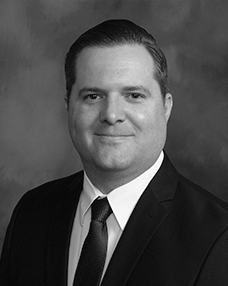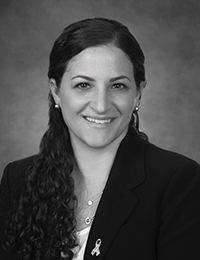
Financial Care for Life > Early Long-Term Care Planning
Early Long-Term Care Planning
It’s Never Too Early to Plan: Preparing for the Cost of Long-Term Care
Thinking about how you will pay for your long-term care should be a part of everyone’s retirement planning process. Too often, it’s avoided or pushed aside as discussions can be both emotionally and financially challenging. In a recent study, it was found that most Americans are unaware of the cost of long-term care and were of the understanding that any long-term care needs would be paid for by the government. Unbeknownst to many, Medicare typically addresses only three months of nursing home care – and only if you initially spend time in a hospital.
Tools that may help you:
It’s important to note that Medicaid long-term care doesn’t begin until you’ve fully exhausted your savings. Also, while Medicaid covers nursing home care for qualified individuals, in-home health service coverage is limited. Plus, it doesn’t cover assisted living. In short, qualifying for Medicaid is more difficult than ever.
With some long-term planning, you could take advantage of several options in the case you require institutional care. Here are some considerations as your prepare for your long-term care needs.
Preparing for Aging in Place
For many, aging in place provides much needed peace of mind and convenience. It entails a conscious decision to grow older in our current residence rather than moving to an assisted living or long-term care facility. It’s the ideal solution for those who plan in advance, modify their home appropriately and create a support network of family and home care services. The combination of affordability, accessibility and optimal housing provides easier options for aging adults to remain in their community with little to no disruption. For many seniors and their family, remaining in a familiar setting is a top priority. However, it comes with some unique challenges. Maintaining independence can become increasingly difficult as age increases and health declines. Everyone’s situation is different so it’s important to evaluate and be realistic about your own circumstances.
Setting Aside Savings
While in your working years, it’s critical to build and contribute to your savings as a means of covering your future long-term care expenses. While you may be focused on retirement planning, you should also have a plan to accumulate enough money to cover the cost of potential care. The cost of care varies based on several variables, including where you live and the services that may be required. Your KIG advisor can help forecast a cost in your area so you’re planning is optimized.
Looking at Long-Term Care Insurance
Long-term care insurance is a specific type of insurance type designed to purchase with the goal of protecting against your cost of future care. The policies are new to the marketplace but they’re becoming increasingly more flexible. The earlier you buy the coverage, the less costly it tends to be, which is why it’s typically advised to purchase in your 50s. However, it’s important to make sure prior to buying that you can afford the premium payments for years to come as it could be a long time before you need long-term care. Some people will never require nursing home care and many only stay a short few months.
Family Care
Is your long-term care planning dependent upon relatives caring for you? If you’re fortunate enough to have this support, it’s important to consider that relying too heavily on your family can bring some significant financial and emotional strains on them. There are some difficult questions that will need to be addressed when considering family care. Regardless, it’s recommended you proactively plan for your long-term care through savings and insurance as a means to mitigate any financial burdens to your family. We also recommend having early family conversations before your long-term planning becomes too emotional. The KIG team can assist in your conversations and planning needs.
Long-term care discussions can be very difficult. The KIG team can help you prepare for these important conversations and deliver a plan that aligns with your future needs.
The information presented here is not specific to any individual's personal circumstances.
To the extent that this material concerns tax matters, it is not intended or written to be used, and cannot be used, by a taxpayer for the purpose of avoiding penalties that may be imposed by law. Each taxpayer should seek independent advice from a tax professional based on his or her individual circumstances.
These materials are provided for general information and educational purposes based upon publicly available information from sources believed to be reliable — we cannot assure the accuracy or completeness of these materials. The information in these materials may change at any time and without notice.





 Maggie Slivinski
Maggie Slivinski Steve Corbo
Steve Corbo Alexandra Rao
Alexandra Rao Alexa Comey
Alexa Comey Gene Donato
Gene Donato Jack W. Kennedy III, CFP®, AAMS®
Jack W. Kennedy III, CFP®, AAMS® Henry (Hank) J. Schroeder, CFP®
Henry (Hank) J. Schroeder, CFP® Diane Gallagher
Diane Gallagher Scott Bernstiel
Scott Bernstiel Chrissy Carpenter
Chrissy Carpenter David Strout
David Strout Keith R. Hering AAMS®, CRPS®, CIMA®
Keith R. Hering AAMS®, CRPS®, CIMA®  Marjorie Onuwa
Marjorie Onuwa